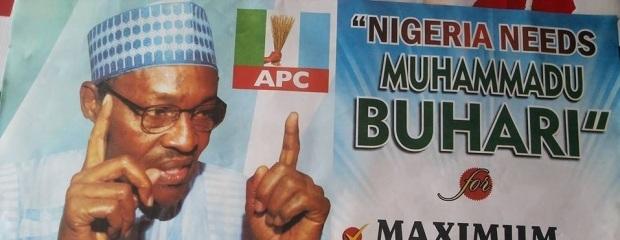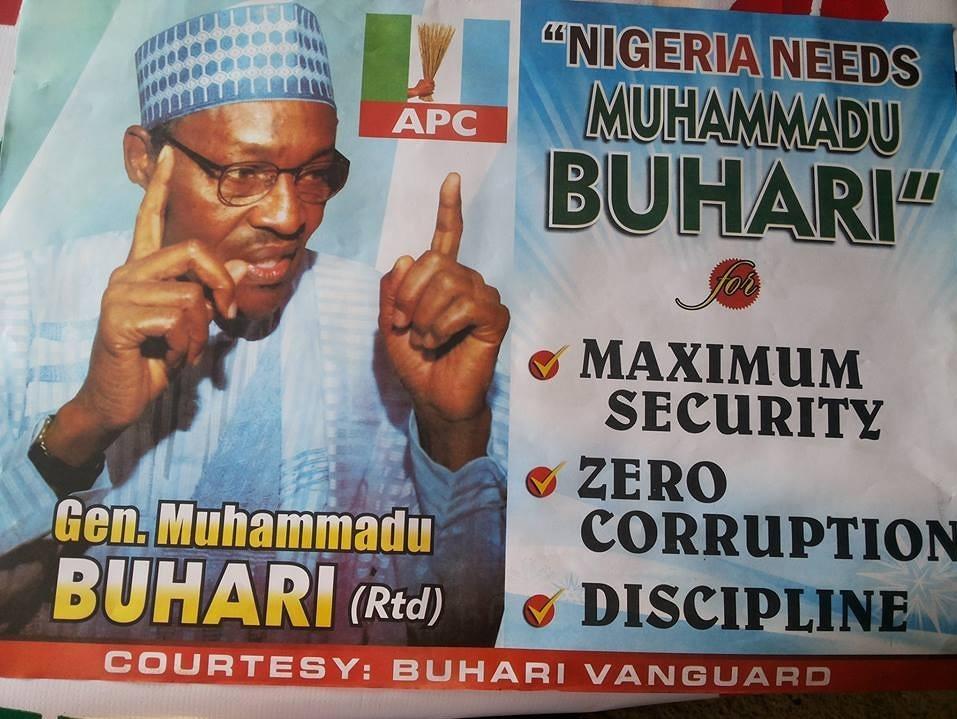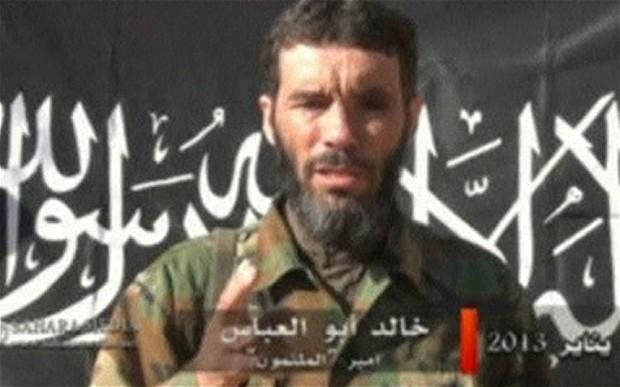Cometh the Hour, Cometh…Buhari? Nigerian election campaign hits London – By Dele Meiji Fatunla

 When the history books come to be written about Nigeria’s 2015 elections, think tank The Royal Institute for International Affairs (better known as ‘Chatham House’) will have played host to some of the most riveting episodes of the drama. A month ago the National Security Adviser Sambo Dasuki trailed the idea that the elections would be postponed; yesterday it was the turn of presidential candidate, General Muhammadu Buhari to set out his stall. For Nigerians in London, this is likely the closest we will get to a flavour of the electoral campaign itself.
When the history books come to be written about Nigeria’s 2015 elections, think tank The Royal Institute for International Affairs (better known as ‘Chatham House’) will have played host to some of the most riveting episodes of the drama. A month ago the National Security Adviser Sambo Dasuki trailed the idea that the elections would be postponed; yesterday it was the turn of presidential candidate, General Muhammadu Buhari to set out his stall. For Nigerians in London, this is likely the closest we will get to a flavour of the electoral campaign itself.
Appealing directly to the west to maintain its support for the Nigerian constitution and electoral process, Buhari obliquely acknowledged the error of his ways in his previous overthrowing of an elected government; arguing that democratic norms, still fragile on the continent, need consolidating. In a year in which Zimbabwe’s president-for-life, Robert Mugabe became chairman of the African Union, Buhari said the prospect of Nigeria holding free and fair presidential elections would consolidate continental democracy more than anything else. But he stopped short of offering an apology for his time as military ruler, insisting only that he was a ruler and not a dictator.
Be that as it may, many of those opposed to his bid for power have seized on this record to argue he is part of the old military elite that should never seek to rule Nigeria again. On this count, Buhari pointed to his three failed bids for the presidency, and the long legal battles that followed his losses, as evidence of his commitment not only to electoral politics, but entrenching democratic norms in Nigeria. The former soldier, often praised for his ascetic lifestyle, was also at pains to characterize himself as a true convert to multi-party democracy.
Whether that is enough to swing the electorate in his favour remains to be seen. What is evident is that Buhari’s team have been doing some solid policy work. During his roughly 40 minute speech, he referenced 19th century British prime minister Benjamin Disraeli’s concept of two nations in one, lambasting Jonathan for cultivating an economy for a privileged few to enjoy, while most live in poverty.
But the most striking thing about the speech were the points of policy Buhari promised – perhaps an influence of the Democratic Alliance tradition brought by his political ally Senator Bola Tinubu, and his policy chief, Kayode Fayemi. Buhari said that if elected his government would create a public works programme to tackle youth unemployment; provide free school meals, and lay the foundation for welfare provision in the country. These would be paid for by tackling corruption in the public administration.
The centrepiece of his speech was an attack on the Jonathan administration’s handling of the Boko Haram insurgency in the North-East. Calling the government’s failure “an act of will” rather than circumstance, Buhari insisted that if elected president Nigeria would “once again be a guarantor of regional stability”.
His detractors disagree. Outside, a voluble pro-PDP crowd was displaced by a larger one of APC supporters, but not entirely. One demonstrator I spoke to was vehemently opposed to Buhari contesting, insisting that Boko Haram was a political invention to aid Buhari’s election as president. An audience question in a similar vein was dismissed by Buhari as “ill-informed”.
Ill-informed or not, such suspicions contributed to the febrile atmosphere outside Chatham House – and indeed on the ground in Nigeria. Buhari’s reputation for incorruptibility, which is perhaps the strongest basis for his popularity, also generates perhaps the greatest fear among many who have benefited from the largesse of the Nigerian state. His administration, Buhari insists, will draw a clean slate, after which all public administration will be expected to be free from graft.
Demonstrating a good command of facts, and addressing concerns about both his age and the insinuations that he intends to impose Sharia law on Nigeria, Buhari struck me as a charming, well-informed and down-to-earth candidate, comfortable in the role of leader. While he made a statement reassuring people that his leadership and tackling of corruption would not be a witch hunt, it remains unclear whether the leap of faith he is asking Nigerians to make is achievable.
Dele Meiji Fatunla works for the Royal African Society. @DeleMeiji







Really good analysis Dele. Well done. I applied to attend but understandably, there was a high subscription. From what I have heard this was a good event. Even the demonstration outside Chatham House was not altogether a bad thing, as it shows that Nigerians (including the ones overseas) care about their country and how it is governed. Great stuff.
Reputation for incorruptibility is questionable. The foundation of his party, APC is laid on Corruption; the likes of Tinubu and co have looted the treasury of Lagos State and Buhari cannot feign ignorance.
Africa in Pain and the Nigerian Civic Electoral Delay
Any further civic electoral postponement in Nigeria will be a most sad reflection on the status of pluralist civics in this potential economic social colossus in Africa. Nigeria if governed in a manner prescriptive has the civic social potential to become an economic and political exemplar in African civic social leadership but the political and economic class have elected not to share this civic social wealth among all Nigerian citizens. There exists in Nigeria a vast profound civic social gulf between the extravagant elites who control the levers of both economics and governance excluding the vast majority of Nigerians who live from day to day existing only on subsistent wages. This is only a prescription to internal civil strife pitting the ‘haves’ against the ‘have nots’. The ISIS and Boko Haram radical violent incursions in the Middle East and in parts of Western Africa is the ‘civic social canary’ expressing alarm in the utter lack of civic social cohesion which all African governments have elected to ignore until prodded by base electoral considerations. Nigeria as with many other African nations is in desperate acute need of prescriptive responsible leadership dedicated to the proposition that to govern is to serve, not to fulfill personal private crass egoist wants. Africa including Nigeria cries and thirsts for civic responsible governance managers who have both ‘heart’ and ‘soul’ grounded within strict ‘caritas’. The most good people of Africa who only desire personal security and safety embedded within a pluralist state promoting education and health delivery as a fundamental civic social right deserve nothing less!
The Presidential and Parliamentary Elections in Nigeria have now been postponed for at least a month by the Nigerian Electoral Commission due to violence in the north eastern part of Nigeria.
Understood that ‘Boko Haram’ is an organization dedicated solely to the advancement of violence and destruction. The ‘Congregation of the People of Tradition for Proselytism and Jihad’—better known by its Hausa name ‘Boko Haram’ meaning ‘Western education is sinful’—is an Islamic jihadist and takfiri militant and terrorist organization governed by the gangsterism ethos without any credence to the serene intellectualism of the Islam Religion advanced by the Prophet Muhammad. Founded by Mohammed Yusuf in 2002, the Boko Haram organisation seeks to establish a “pure†Islamic state ruled by sharia law, putting a stop to what it deems ‘westernization sustained by crass colonialism’.
My question is simple.
Will this civic electoral delay compromise the ‘absolute’ integrity of this Nigerian Presidential Election and to a lesser degree the election of parliamentarians?
If so; Why?
If not so; Why not?
I look forward to your comments and insights as this issue of civic electoral delay does for me pose an intellectual ontological concern as to ‘pure’ civic electoral process and procedure as to whether external conditions can create an environment severe to sustain civic electoral closure I trust without any political public taint which regardless does have the potential to compromise civic electoral integrity.
There is not an absolute right or wrong response but we as electoral practitioners ought to be cognizant as to the potential negative civic social collateralization of this civic electoral process.
While the postponement may or may not affect the integrity of the election (depending on what happens or does not happen during this injury time), it has achieved one thing: slow down the momentum of the opposition. As it is usually done in American basketball matches, one team often calls for “time-out” when the opponent is rampaging with full force like a speeding locomotive!
It usually takes time for the opposing team to regain the lost momentum!
The Nigerian people deserve leadership that addresses the issues of globalization and the attendant consequences. How will the nation protect its massive resources human and material? Are the chances that given any of the regional conflicts that flares up every now and again around the world, especially in Africa that our leaders can deal with deftness? Where can 175 million take refuge? It estimates that a few million displaced Africans live in Nigeria. Why is it difficult to include the entire stakeholders of Nigeria in configuring the political wheel? Address these issues also. What is your vision for the future for the nation you want to lead? Careful what you wish for . Sow unity you will reap unity. Sow division you you will reap conflicts.
Buhari has absolutely nothing to offer Nigeria but an evil man that only invented Boko Haram to terrorize Nigeria but God is greater and Buhari is now ashamed as his only campaign strategy is being destroy now….NO TO BUHARI NO TO OLD AGE MAN..NO TO ILLITERATE…..VOTE PDP VOTE JONATHAN & SAMBO….Reason go and read http://www.forwardnigeria.ng/state_by_state just a glimpse of the greater work did by GEJ lead government in the midst of trouble water everyday since he entered the seat of presidency…
Awesome analysis! Thanks for a job well done!
I blame western politics on Nigeria, Britain new very well that the North of Nigeria are educationally backward people and easily manipulated, gave them power and made them to feel they are born to rule the more educated southern Nigeria, and that has been in their minds till today, what a shame. Nigeria can never be like Liberia or Serrialone or Libya, we shall fight this trend to a stand still.
theres one thing in Buhari’s mind revenge and he wants it spontaneously, it will plunge Nigeria into crises, APC has told Nigeria too many lies including the recent attempt to manupulate the PVC collection using Jiga, Boko haram, etc if buhari has a solution to Boko haram problems, why did he refuse to work with President Jonathan, just like Hilary, Kerry and others from Republican party in the US
I was in Nigeria when Buhari was president, it was frighten period. many innocent individuals were killed because of a little thing.. His party (PCP) there top officials are made up of corrupts and authoritarian individuals. With my understanding, Nigeria will become the worst country in the world if Buhari become the president of Nigeria. Mr. Tinubu looted lagos treasury when he was the governor. Buhari was not ashamed of himself to ask people to vote for him. I am 100% sure. he can not go to Ibo land to talk nonsense , they will stone him. No matter that I am not in Nigeria, but I still love Nigeria my country.
The elections will hold in Nigeria, not Britain. Buhari and APC dodged public debates in Nigeria that would have allowed the populace insight into their level of understanding of the problems of Nigeria, their manifesto and possibly, a rough assessment of what could be their leadership styles. What is the population of Nigerians in London in comparism with those at home? What is the essence of organising a so called ‘Chatham House’ of waste that excluded those that will do the real voting in Nigeria? Will London vote for Buhari? Are those in London coming home to vote for him? Anyway, Buhari is a bad sell any day anywhere. We are just waiting for his usual cries after election.
The sad thing about Buhari’s candidacy is that many Nigerians are ill-informed. They want politics as usual notwithstanding the autocratic rule of Jonathan and the insecurity in the nation based on this administration. Stirring the political pot to the boiling point is the religious sentiments. If Buhari succeeds on March 28, Nigeria would be a better place.
This is not about president Jonathan and gen. Buhari. It is about a political party that has ruled for sixteen years and not really much to show for it. Let us try another political party for eight years just as we have the Democrats and the Republicans in the US. it will make our politicians to behave and be up and doing thereby reducing the high level of inept among our leaders.
Why is buhari campagne in Londen are we voting in Londen